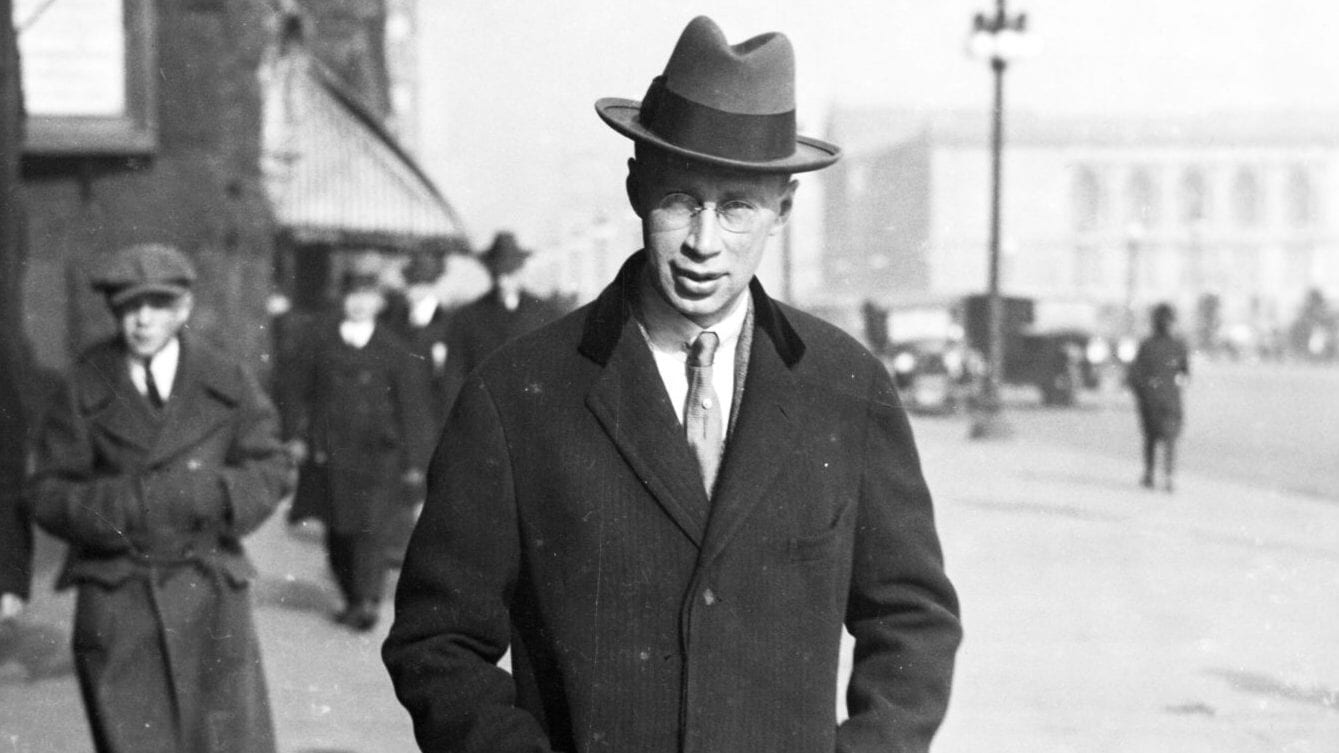When the February Revolution of 1917 broke out in Petrograd, Sergei Prokofiev resettled in the United States, stating that his native Russia “had no use for music at the moment.” Soon after arriving in New York, the 28-year-old Prokofiev received a commission from Zimro, a touring Soviet ensemble made up of Russian Jewish immigrants. The new sextet was to be based on themes from a notebook of Jewish folksongs.
In his autobiography, the composer writes,
In the autumn, the Jewish ensemble Zimro came to America. It consisted of a string quartet, a clarinetist, and pianist. All of them had been fellow pupils of mine at the Petersburg Conservatory. They had a repertoire of quite interesting Jewish music for various instrumental combinations. They asked me to write an overture for six instruments for them and gave me a notebook of Jewish melodies. At first, I didn’t want to take it because I was accustomed to using my own themes. But finally I kept it and one evening I chose a couple of nice melodies from it and began to improvise on them on the piano. I didn’t place much importance on this overture, but it was quite a success.
Composed in 1919, the Overture on Hebrew Themes, Op. 34 begins with a stately festive dance (Un poco allegro), introduced by the clarinet. We hear the distinct vocal inflections of klezmer, with its blend of joy tinged with melancholy. The second theme (Più mosso) is cantabile and rhapsodic. At times, the nostalgic instrumental conversation is enveloped in colorful and dreamy ostinati.
Orchestral Version
Fifteen years after completing the original composition, Prokofiev created a version for chamber orchestra. The work is frequently heard in this form. This performance, featuring Latvian conductor Andris Poga and the Frankfurt Radio Symphony, was recorded in February of 2025:
Sextet
Here is the original version for string quartet, clarinet, and piano. This 1994 recording features clarinetist Giora Feidman, pianist Yefim Bronfman, and the Juilliard String Quartet:
Recordings
- Prokofiev: Overture on Hebrew Themes, Op. 34, Giora Feidman, Yefim Bronfman, Juilliard String Quartet Amazon
Featured Image: Sergei Prokofiev in Chicago, 1919

